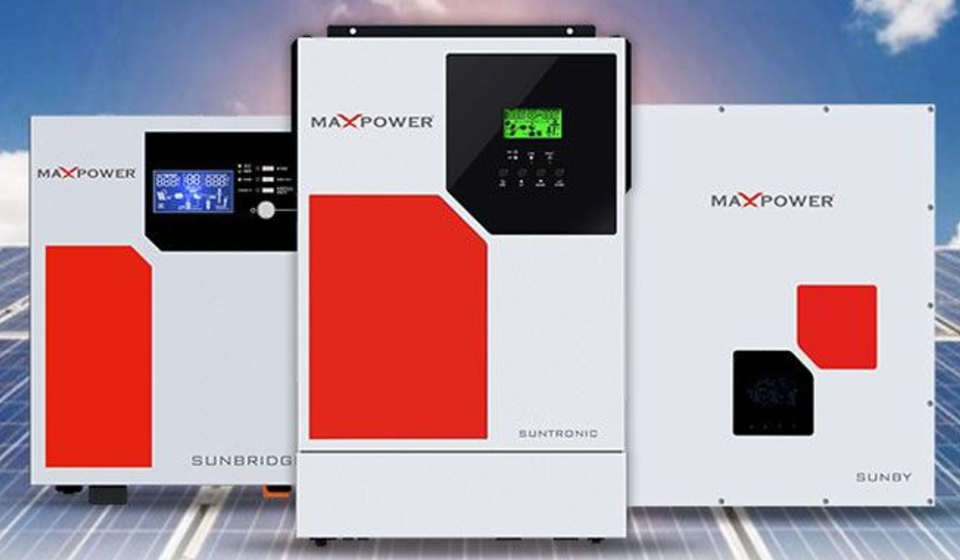
Why Lithium-Ion Batteries Are Considered a Gamechanger
February 18, 2025
How solar pumping inverters can benefit farmers and landowners?
February 18, 2025The adoption of solar energy is no longer just a trend; it is a powerful shift in how businesses manage energy consumption, reduce costs, and address their environmental impact. As industries and commercial sectors move toward sustainability, solar energy is crucial in transforming energy systems.
Solar energy, particularly commercial solar power, is becoming increasingly common, helping businesses transition from conventional energy sources to renewable energy solutions. With rising energy costs and growing environmental concerns, the commercial and industrial sectors are leveraging solar energy to gain a competitive edge.
The Shift Towards Solar Energy in the Commercial Sector
In recent years, the commercial sector has become a significant adopter of solar energy solutions. Companies are installing commercial solar power systems to reduce energy bills, achieve sustainability goals, and lower carbon footprints. According to industry trends, the commercial sector is moving toward using renewable energy, and the growth of solar installations reflects this shift. The cost savings from solar energy, combined with various government incentives and tax rebates, have made it an attractive option for businesses worldwide.
Solar power offers businesses more than just a reduction in operational costs. It enables them to take control of their energy generation. With solar installations, businesses can produce electricity and reduce their reliance on energy from the grid. This stabilizes energy costs and enhances energy security, especially when grid supply may be unpredictable or subject to fluctuating prices.
Additionally, businesses can benefit from solar batteries for home use, which store excess energy generated during the day. This stored energy can be used at night or during cloudy periods when solar generation is low. This allows for a reliable energy supply for businesses and helps mitigate any issues arising from peak energy demand.
Solar Energy’s Role in the Industrial Sector
The industrial sector is one of the largest energy consumers globally, with manufacturing, production, and machinery operations driving significant energy needs. As energy prices rise, industries increasingly use renewable energy solutions, including solar power, to manage costs. The growing adoption of commercial solar power in industrial sectors demonstrates the viability of solar energy as a cost-effective solution for energy-intensive operations.
Industries benefit from commercial solar power in several ways. First, they can reduce the overall cost of energy. Large-scale solar installations allow businesses to generate power on-site, providing a stable and predictable energy source. This can be especially important for industries with high energy demand, as it helps avoid spikes in energy costs associated with peak usage times.
The industrial sector also uses the ample space available on rooftops and unused land to install solar panels. Solar systems in industrial settings reduce energy bills and contribute to sustainability goals by reducing reliance on fossil fuels and carbon emissions. By integrating solar power into their operations, industries can make meaningful contributions toward reducing their environmental footprint.
Solar Batteries and Energy Storage for Commercial and Industrial Use
One of the main challenges with solar power is its intermittency—solar panels only produce energy during daylight hours. For commercial and industrial businesses that need constant power, solar batteries for home use and large-scale storage solutions become invaluable. Solar batteries store excess energy generated during the day, allowing businesses to use this stored energy when the sun isn’t shining.
In the commercial sector, having a backup energy source through solar batteries for home use ensures businesses can continue operations without interruption, even during power outages. Advanced energy storage systems can store large quantities of energy for larger industrial applications, making it possible to rely entirely on solar energy, even when production requires round-the-clock power.
Solar energy storage helps businesses avoid buying expensive energy from the grid during peak demand hours, lowering energy costs. These energy storage solutions enhance energy resilience, allowing businesses to operate smoothly despite grid disruptions.
Environmental and Sustainability Impact of Solar Energy
The environmental benefits of adopting solar energy are a major driving factor for both the commercial and industrial sectors. Businesses that invest in solar energy can significantly reduce their carbon footprint. Unlike fossil fuels, solar energy produces no harmful emissions and has minimal environmental impact. With global attention focused on climate change, companies that adopt renewable energy solutions are seen as leaders in sustainability.
In addition to helping businesses achieve sustainability goals, using solar energy aligns with the growing demand for clean energy. By embracing solar power, businesses contribute to reducing global carbon emissions and help pave the way for a cleaner, greener future. Many companies today recognize the importance of corporate social responsibility (CSR), and adopting commercial solar power is a strong step toward meeting sustainability commitments.
The Future of Solar Energy in the Commercial and Industrial Sectors
As technology advances, the role of solar energy in the commercial and industrial sectors is expected to grow. Innovations in solar panel efficiency, energy storage, and grid integration will make solar power even more attractive for businesses. Over time, the cost of installing solar systems is expected to continue decreasing, making it even more accessible for businesses of all sizes.
Furthermore, as more companies seek to reduce their carbon footprint and meet governmental regulations, solar power will become a key tool for achieving sustainability goals. With incentives such as tax rebates, green certifications, and sustainability recognition programs, businesses transitioning to solar will gain a competitive edge in a market that increasingly values environmental responsibility.
Solar energy is no longer a luxury but a critical tool for businesses to reduce energy costs, improve sustainability, and stay competitive in a rapidly changing world. By adopting commercial solar power, businesses in the commercial and industrial sectors are reducing their dependence on the grid, lowering their carbon emissions, and contributing to a greener future. With the added benefits of solar batteries for home use and large-scale energy storage, solar energy offers a reliable and efficient solution for businesses of all sizes.
Learn more about how Max Power Solar Energies can help your business save costs, improve sustainability, and lead in renewable energy.




